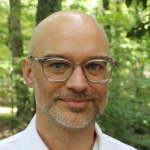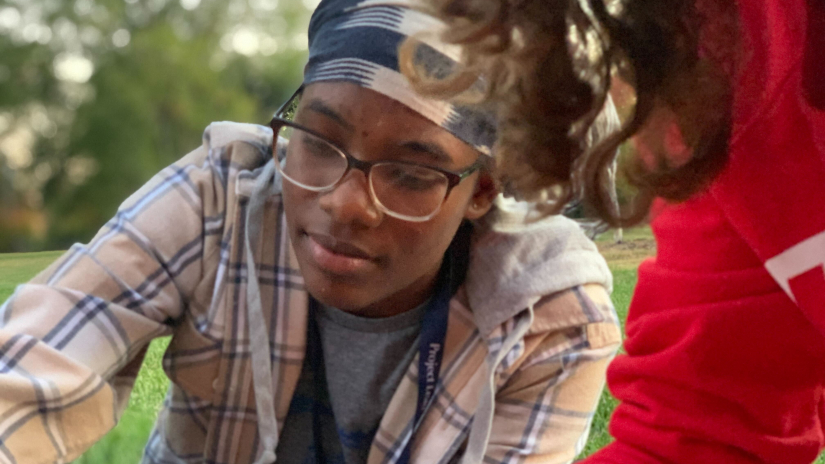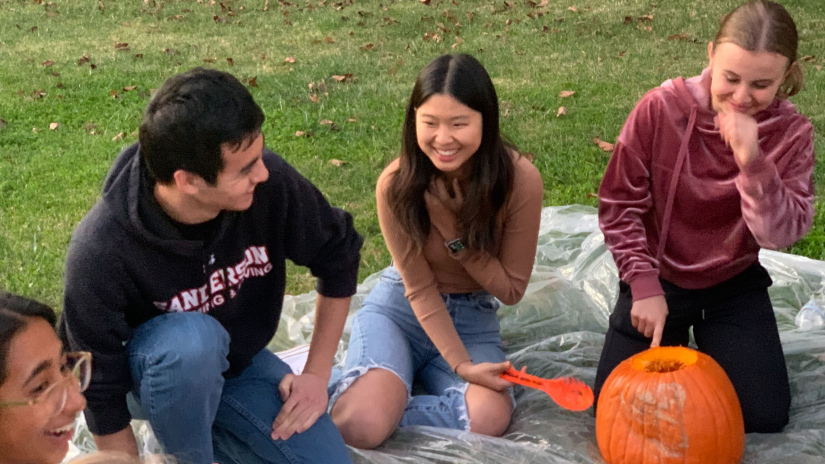Free For All: Freedom, Justice, and Citizenship
Overview
What does it mean to act freely, on our own and with others? How do moral and political obligations take shape within collective contexts marked by inequality, conflict, and historical harm? And what kinds of cultural, philosophical, and institutional practices make justice possible beyond abstract ideals?
Through three complementary courses grounded in philosophy, political theory, cultural studies, and justice practice, students examine the ethical conditions of collective life: how responsibility is negotiated among individuals, how communities respond to harm, and how democratic practices cultivate moral imagination amid deep pluralism. The program moves deliberately between theory and practice, engaging classical moral philosophy alongside contemporary debates about democracy, justice, and public responsibility. Jazz functions as a model of democratic coordination and ethical attunement; restorative justice offers concrete alternatives to retributive systems across legal, educational, environmental, and global contexts; and philosophical inquiry into freedom and moral obligation provides a rigorous groundwork for understanding how these two interrelate.
Situated within the intellectual community of the Kenan Institute for Ethics, the program reflects the Institute’s commitment to rigorous interdisciplinary inquiry into moral life and public responsibility. A short, faculty-led field trip—typically to Duke in DC—extends classroom inquiry by offering opportunities to engage with alumni and practitioners whose work reflects the ethical questions explored in the program. Taken together, these courses invite students to reconceive freedom as a lived practice—one constituted through habits, relationships, and shared commitments—and to consider how such forms of freedom make justice possible in an increasingly complex world.
Courses
— Swinging Toward Justice: Jazz, Moral Imagination, and Democratic Life

Patrick Smith, Associate Research Professor of Theological Ethics and Bioethics, Duke University Divinity School
Director, Capacious Minds Initiative, Kenan Institute for Ethics
Senior Fellow, Kenan Institute for Ethics, Duke University
Jazz is pluralistic democracy in action, and if we want to understand how to create a thriving political community, we need to know how to swing. This course in political and moral thought examines the ethical conditions of democratic life through jazz as a model of collective action. Students engage classic and contemporary texts in moral and political philosophy alongside themes in jazz to consider questions of justice, agency, and solidarity in pluralistic societies. By treating jazz performance as a living laboratory of public life, the course asks whether democracy can “swing”— and how cultivating these habits might orient us toward a more just public life.
Ethics 190FS/ Public Policy 190FS/ Sociology 190FS - Just Work: Restorative Justice Models and Applications (IJ)

Ada Gregory, Associate Director, Kenan Institute for Ethics
Restorative Justice (RJ) has emerged as a “new” means of reforming the modern justice system. This course explores the aims of RJ to provide an alternative to typical retributive justice models in various contexts: the criminal justice/education systems, the environmental justice movement, and in international human rights work. Beginning with an overview of theory and practice, the course will critically consider RJ’s strengths and limitations to address harms within and beyond State boundaries and those affecting past and future generations or entities other than humans (animals, plants, rivers, land). The course will ultimately ask whether RJ offers the kind of shift needed in our society to adequately address the current failings in our justice systems within our communities, our institutions, and our world.
Philosophy 124FS — Freedom and Moral Obligation (IJ)

Jesse Summers, Director of University Initiatives, The Purpose Project,
Senior Fellow, Kenan Institute for Ethics, Adjunct Associate Professor of Philosophy
Are moral obligations limitations on our freedom, or are they, as some philosophers have insisted, the fullest expression of freedom? To understand the disagreement, we’ll look at moral obligations, particularly social and political obligations. How do collective moral obligations, like climate change or reparations for slavery, obligate us individually—or do they? Is freedom of speech morally required? Finally, we will consider Kant’s Groundwork of the Metaphysics of Morals, in which Kant argued that we are only free when our actions are dictated entirely by morality.



